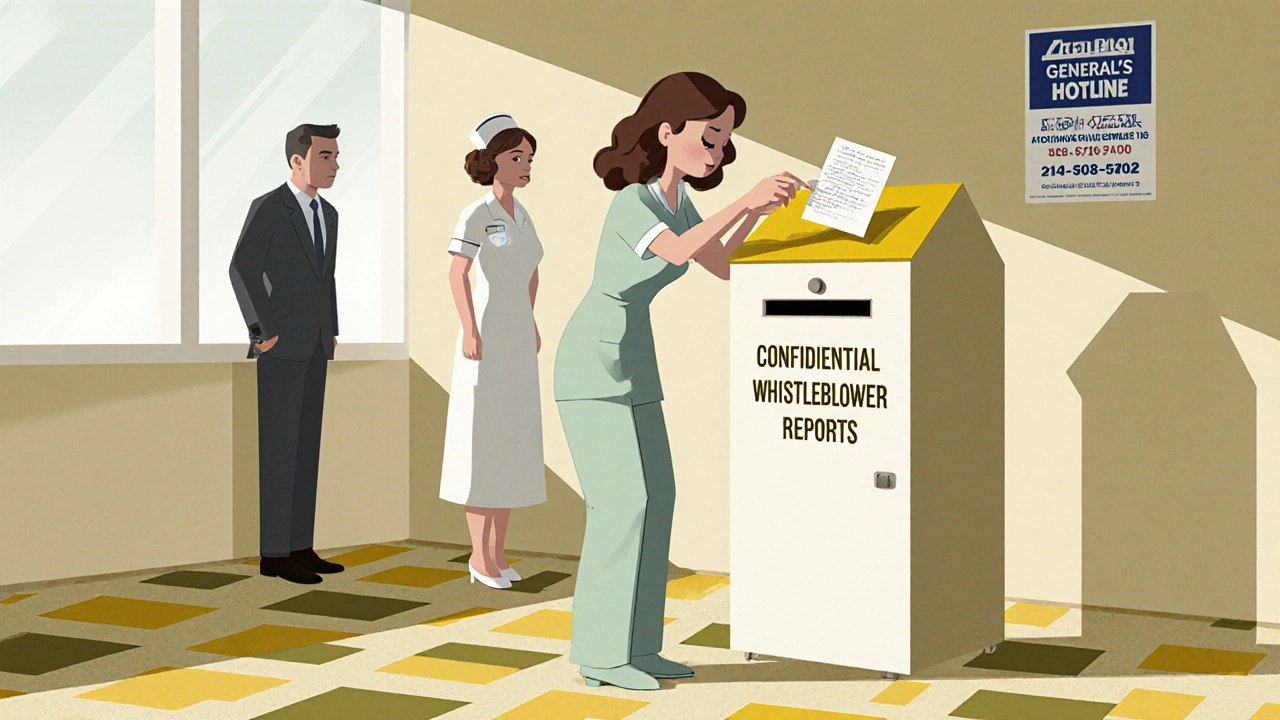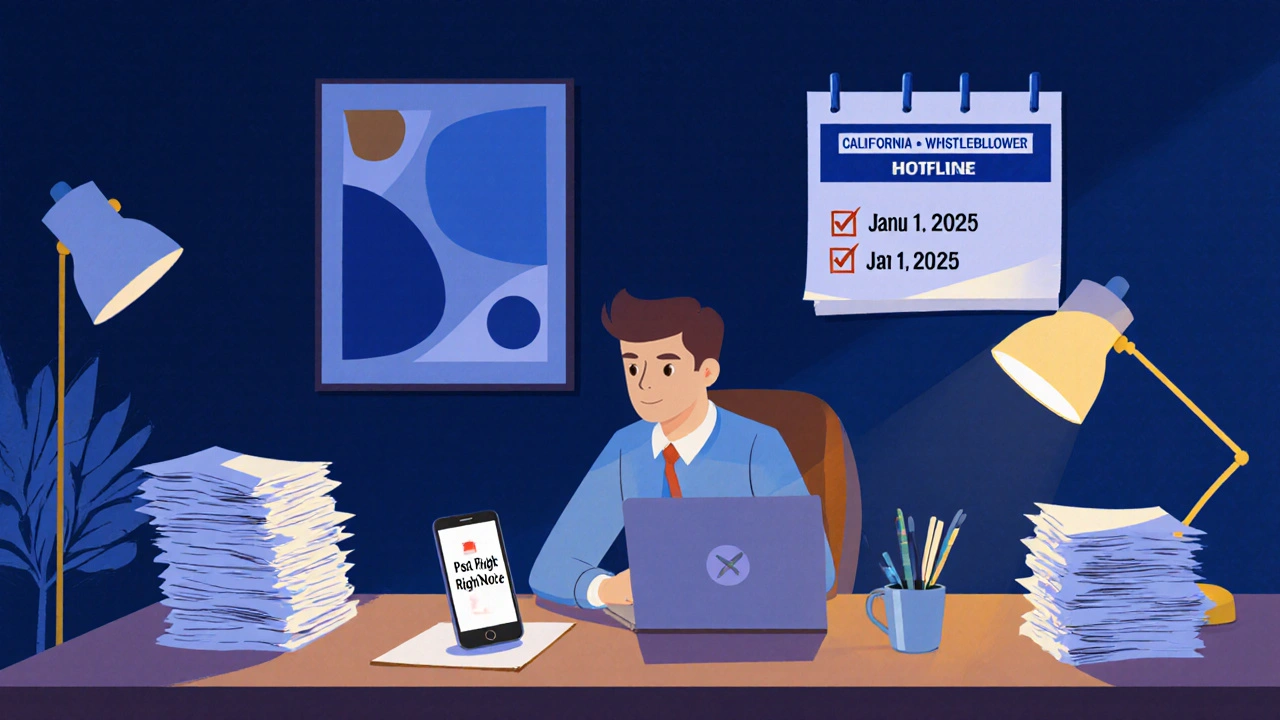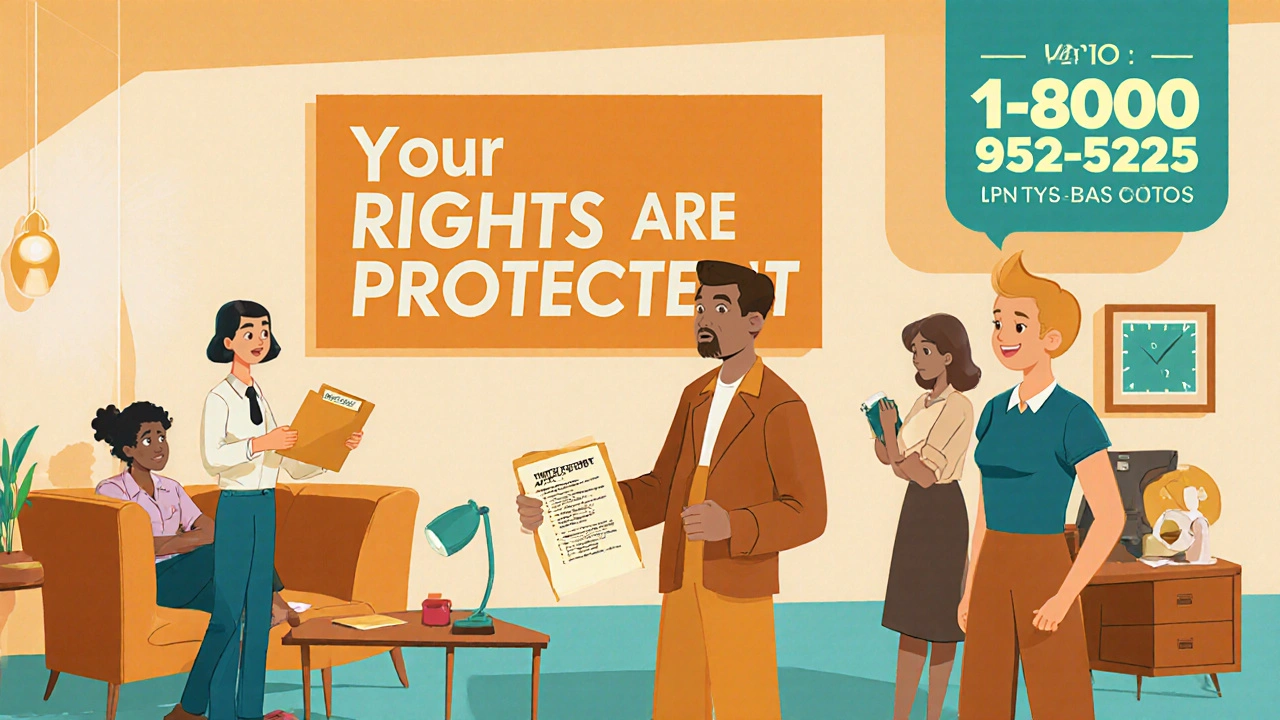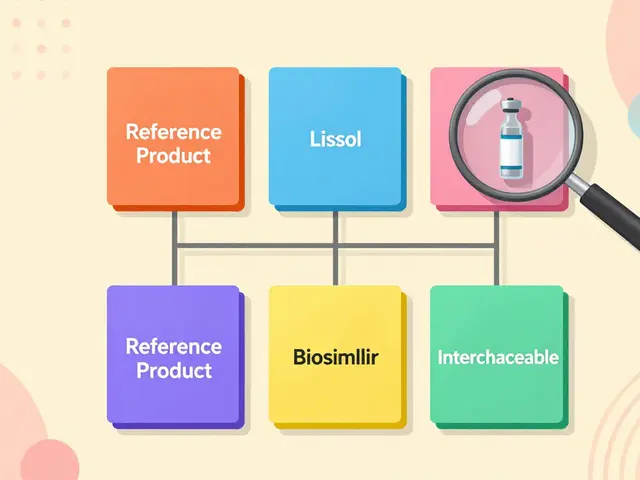What happens when you see something wrong at work - something illegal, dangerous, or unethical - and you speak up? If you’re in California, you have more legal protection than most workers in the U.S. But even then, you might still lose sleep wondering if you’ll get fired, pushed out, or blacklisted. You’re not alone. Thousands of people face this choice every year: stay quiet or risk everything to tell the truth.
What Exactly Does Whistleblower Protection Mean?
Whistleblower laws exist to stop employers from punishing people who report illegal or harmful behavior. It’s not about gossiping or complaining about a rude boss. It’s about exposing things like unsafe equipment, environmental violations, financial fraud, patient neglect, or illegal dumping. The law says: if you report these things in good faith, your employer can’t fire you, cut your hours, deny you a promotion, or make your life miserable just because you spoke up. In California, the main law is California Labor Code Section 1102.5. It protects you even if you’re just a job applicant, not a current employee. It also protects you if your employer thinks you might report something - even if you never actually do. That’s important. Some companies try to punish people just for being “potential” whistleblowers. Protected reports include telling your manager, calling a government agency, or filing a complaint with the state. You don’t need proof - just a reasonable belief that the company is breaking the law. That’s a big deal. You don’t have to be a detective. You just have to be honest.What Counts as Retaliation?
Retaliation isn’t always obvious. It’s not always a pink slip. More often, it’s quiet, slow, and designed to push you out without saying the word “fired.” Here’s what’s illegal under California law:- Getting fired or laid off after reporting a violation
- Being demoted or moved to a worse shift
- Having your pay cut or hours reduced
- Being denied a raise or promotion you earned
- Being given impossible tasks or constant negative reviews
- Being isolated, ignored, or bullied by coworkers after speaking up
- Being forced to quit by making your job unbearable (called “constructive discharge”)
California’s New 2025 Rules - What You Need to Know
Starting January 1, 2025, every employer in California - yes, even the small coffee shop or landscaping company - must post a clear, visible notice about whistleblower rights. The notice must include the California Attorney General’s whistleblower hotline: 1-800-952-5225. It has to be in at least 14-point font, in a common area like the break room or near the time clock. This isn’t just a suggestion. Failure to post it? That’s a civil penalty of up to $10,000 per violation. Employers are scrambling to comply. A survey by the California Chamber of Commerce in October 2024 found that 65% of small business owners didn’t even know this rule was coming. Why does this matter? Because most people don’t know their rights. If you’re not told you’re protected, you won’t speak up. This law forces employers to admit that whistleblowing is legal - and that retaliation is not.
Federal vs. California Protections - What’s Better?
California’s law is broader than most federal laws. It covers violations of any state or federal law - from wage theft to environmental crimes. Federal laws are narrower. For example:- The Sarbanes-Oxley Act only protects employees of public companies reporting financial fraud.
- The False Claims Act covers fraud against government programs like Medicare or defense contracts.
- The Dodd-Frank Act gives whistleblowers 10-30% of the money recovered if their report leads to a $1 million+ fine. In 2023, the SEC paid out $637 million to 131 people.
What You Should Do Before Reporting
Don’t just walk into your boss’s office and say, “I’m reporting you.” That’s risky. Here’s what smart people do:- Document everything. Save emails, texts, screenshots of policies, notes from meetings. Write down dates, times, names, and what was said. California requires “clear and convincing evidence” - you need proof.
- Know your deadlines. For federal claims, you have 30 to 180 days to file with OSHA, depending on the law. Miss the deadline, and you lose your case. California has no strict deadline for filing under 1102.5, but waiting too long weakens your case.
- Don’t rely on HR. HR works for the company. They’re not your friend. If you report internally, do it in writing and keep a copy.
- Call a lawyer first. The National Whistleblower Center says 78% of successful cases had legal help. You don’t need a big firm - many nonprofits offer free advice.
- Use the hotline. California’s whistleblower hotline (1-800-952-5225) is staffed by real people who can explain your rights. No judgment. No pressure.
What Happens After You Report?
You might think reporting ends the problem. It doesn’t. It starts a long, stressful process. In California, the average case takes 22 months to resolve, according to the Division of Labor Standards Enforcement. During that time, you might be unemployed, underpaid, or working in a hostile environment. That’s why many people don’t report - they can’t afford the wait. If you win, you can get your job back, back pay, compensation for emotional distress, and even punitive damages. But winning isn’t guaranteed. Employers fight hard. They’ll claim your report wasn’t protected, or that you were fired for “performance issues.” That’s why documentation matters. One worker in Sacramento reported unsafe machinery. Her employer said she was “difficult to work with.” But she had 14 emails showing her safety concerns were ignored - and her performance reviews had been perfect until she spoke up. She won.
Where to Get Help
You don’t have to do this alone.- California Attorney General’s Whistleblower Hotline: 1-800-952-5225 - free, confidential, and staffed by legal experts.
- OSHA Whistleblower Protection Program: 800-321-6742 - for federal claims.
- National Whistleblower Center: Offers free legal advice, resources, and support. They helped over 1,200 people in 2024.
- Legal Aid Societies: Many offer free or low-cost representation for employment law cases.
The Bigger Picture - Why This Matters
Whistleblowers aren’t heroes. They’re regular people who care enough to speak up. They’re the nurse who notices patients are being neglected. The engineer who sees a safety flaw in a product. The accountant who finds fake invoices. They’re the reason we have clean water, safe drugs, and honest financial markets. The Congressional Budget Office estimates strong whistleblower protections could save taxpayers $12.7 billion a year by stopping fraud. That’s real money. That’s lives saved. But the system is broken. Enforcement is slow. Employers have more power. The law is scattered across 25 federal statutes and dozens of state laws. Professor David P. Weber called it a “patchwork” - confusing, inconsistent, and unfair. That’s why new laws are coming. In May 2025, Senator Grassley introduced the AI Whistleblower Protection Act to protect tech workers who report unethical AI practices - like biased algorithms or hidden surveillance. It’s the first law of its kind. California’s 2025 posting rule is a model for the rest of the country. If every state required employers to post whistleblower rights, more people would speak up. More fraud would be caught. More lives would be protected.What You Can Do Right Now
If you’re thinking about reporting something:- Write down what you saw - today.
- Find the California whistleblower hotline number and save it in your phone.
- Look for the new notice in your workplace - if it’s not there after January 1, 2025, you can report your employer.
- Don’t wait until you’re fired. Talk to someone who understands the law before you speak up.
Can I be fired for reporting a violation in California?
No. Under California Labor Code Section 1102.5, it’s illegal for an employer to fire, demote, harass, or retaliate against you for reporting what you reasonably believe is a violation of state or federal law. If you are retaliated against, you can sue for reinstatement, back pay, and damages.
What if I report anonymously?
You can report anonymously to government agencies like OSHA or the Attorney General’s hotline. However, if you want to sue your employer for retaliation, you’ll need to identify yourself in court. The law protects your identity during the initial report, but full legal remedies require your name to be on the case.
How long do I have to file a whistleblower claim in California?
California’s Labor Code Section 1102.5 doesn’t have a strict deadline, but you should act quickly. Courts expect timely action, and delays can weaken your case. For federal claims, deadlines range from 30 to 180 days depending on the law - missing one means you lose your right to sue.
Do I need a lawyer to report a violation?
No, you don’t need a lawyer to make an initial report. But if you face retaliation, having legal representation dramatically increases your chances of winning. The National Whistleblower Center reports that 78% of successful whistleblower cases had a lawyer.
Can I report a violation if I’m not a U.S. citizen?
Yes. Whistleblower protections in California apply to all workers, regardless of immigration status. Your right to report illegal activity is not tied to your visa or citizenship. Employers cannot use your immigration status as a threat or excuse for retaliation.
What if my company has a whistleblower policy?
Having a policy doesn’t mean it’s fair or legal. Many company policies are designed to discourage reporting or funnel complaints through HR - which often sides with management. You can still report to state or federal agencies even if your company has a policy. In fact, going outside the company is often the safest route.







Holly Lowe
28 November 2025 - 02:29 AM
OMG I just saw this and my jaw dropped. I reported my boss for falsifying safety logs last year and they ‘restructured’ me out of my role. No pink slip, just… vanished. I cried for three days. Then I found that hotline. You’re not alone. The law is on your side, even when it feels like the whole world is against you. I won my case. Took 18 months. Worth every second.
Also-yes, HR is NOT your friend. I told them everything. They nodded. Then my file got ‘lost.’ Don’t trust the system. Trust your paper trail.
And if you’re reading this and scared? Save this post. Print it. Tape it to your mirror. You’re not a snitch. You’re the reason the lights stay on.
Simran Mishra
28 November 2025 - 03:11 AM
It is interesting to observe, in the context of contemporary labor dynamics under neoliberal capitalism, how the legal architecture of whistleblower protections functions as a symbolic gesture rather than a substantive safeguard-especially when one considers the structural power imbalance between individual employees and corporate entities, wherein the former are often rendered economically vulnerable through delayed adjudication processes, psychological warfare via workplace isolation, and the insidious normalization of retaliatory microaggressions that evade formal classification as ‘retaliation’ under statutory definitions, thereby creating a chilling effect that discourages reporting even when moral clarity is present.
Moreover, the 2025 posting requirement, while laudable in its intent, risks becoming performative compliance-a mere checkbox exercise-unless paired with mandatory employee education modules and independent oversight bodies empowered to audit enforcement, because knowledge without access to justice is merely a cruel illusion, and I fear that in many small businesses, this notice will be printed on a 5x7 card and tucked behind the coffee machine, unread and unacknowledged, while the manager continues to whisper threats in the breakroom.
And yet-I still believe in the power of truth. Even if the system is broken, speaking up fractures the silence. And silence is the real enemy.
Natalie Sofer
29 November 2025 - 19:26 PM
Thank you for writing this. I’m so glad someone finally laid it out plain. I work in a clinic and saw meds being mixed wrong for months. I was terrified. I didn’t know where to turn. I kept thinking, ‘What if I’m wrong?’ But I wrote it all down. Dates. Names. Bottles. Then I called the AG hotline. They didn’t judge me. They just said, ‘You did the right thing.’
HR tried to ‘talk it out.’ I gave them my paper trail. They shut up.
And yes-save the hotline number in your phone. I did. I still have it.
Also, if you’re not a citizen? Still protected. Don’t let anyone scare you out of doing what’s right.
Tiffany Fox
29 November 2025 - 20:05 PM
Save the hotline number. Now. Seriously. Put it in your contacts under ‘Emergency.’ Not ‘HR.’ Not ‘Boss.’ ‘Emergency.’
Rohini Paul
30 November 2025 - 10:41 AM
I’m from India and honestly, this feels like a whole other planet. Here, if you report something, you get labeled ‘troublemaker’ and quietly fired. No lawsuit, no notice, just… gone. No one talks about it. No posters. No hotlines. Just silence.
But reading this? It made me want to push harder at my workplace. We have a safety issue with our chemical storage. I’m scared. But maybe… maybe I can start small. Take photos. Write it down. See if someone else notices too.
It’s not about being brave. It’s about not being okay with what’s happening.
Also-why is HR always the first to disappear when things get real? 😅
Courtney Mintenko
2 December 2025 - 10:02 AM
Whistleblowers are just people who can’t handle being ignored and think their opinion is more important than company loyalty
Also why is everyone acting like this is some noble act when 90% of reports are just people mad their boss didn’t give them a raise
and the fact that you don’t need proof? That’s a lawsuit waiting to happen
and why is the government giving out millions to people who complain? This is why America’s broke
also HR is not the enemy. You’re just mad because you got called out
and the 2025 law? More bureaucracy. More paperwork. More lawyers getting rich off your drama
you’re not a hero. You’re a liability
Sean Goss
3 December 2025 - 11:28 AM
Let’s deconstruct the legal framework here. Under 1102.5, the ‘reasonable belief’ standard creates a significant epistemic vulnerability-employers are forced to defend against subjective perceptions rather than objective violations, which incentivizes strategic litigation and increases adjudicative noise.
Also, the federal OSHA backlog is a function of underfunding, not systemic failure. The SEC whistleblower program is the only one with true economic alignment-10-30% payout creates a market incentive, whereas California’s model relies on moral hazard.
And the posting requirement? A compliance theater artifact. You don’t educate people by taping a notice to a wall. You educate them with training, audits, and accountability structures. This is performative governance dressed in legislative language.
Also, why are we ignoring the fact that 78% of successful cases involve lawyers? That’s not empowerment. That’s commodification of justice.
Khamaile Shakeer
4 December 2025 - 14:47 PM
Bro. You’re telling me I can’t get fired for reporting my boss for stealing time sheets?? 😱
But in my company? I saw the manager take $2000 in cash from the register. I told HR. Next day, my laptop was ‘malfunctioning.’ I was told to ‘take a break.’
Now I’m working at a gas station. 🤡
California law? Sounds like a fantasy. I’m from India. We don’t have posters. We have silence. And bribes. 😅
Also… I’m still mad I didn’t get the $637 million. 😭
Suryakant Godale
6 December 2025 - 10:44 AM
Respectfully, the legal protections outlined herein represent a commendable advancement in labor rights, particularly in their extension to applicants and the inclusion of constructive discharge as actionable retaliation. However, the absence of a statutory deadline under California Labor Code Section 1102.5, while seemingly beneficial, may inadvertently encourage evidentiary decay and testimonial inconsistency, thereby undermining the integrity of adjudication. Moreover, the reliance on informal reporting mechanisms-such as the hotline-without formal documentation protocols, may expose complainants to procedural vulnerabilities. It is therefore recommended that individuals, prior to initiating any disclosure, secure legal counsel and maintain contemporaneous, timestamped records of all communications, both internal and external, to preserve the evidentiary chain. The moral imperative to report wrongdoing must be balanced with strategic legal prudence.
John Kang
7 December 2025 - 19:26 PM
You got this. Seriously. I’ve been where you are. Scared. Alone. Wondering if you’re overreacting.
Here’s the truth: you’re not. What you saw matters.
Write it down. Save it. Call the hotline. Don’t wait for permission. You don’t need to be perfect. You just need to be honest.
And if you’re reading this and thinking ‘I’m not brave enough’-you already are. Because you’re here. You’re reading. That’s the first step.
I’m rooting for you.
Bob Stewart
8 December 2025 - 20:18 PM
Correction: The California Attorney General’s whistleblower hotline is 1-800-952-5225, as stated. However, the OSHA hotline for federal whistleblower complaints is 1-800-321-6742, not 800-321-6742 as implied by the omission of the country code in the text. This is a minor but potentially consequential typographical inconsistency that may impede access for users unfamiliar with U.S. dialing conventions. Additionally, the claim that California has no deadline for 1102.5 claims requires clarification: while no statutory deadline exists, courts apply equitable tolling and laches doctrines, meaning undue delay may result in dismissal. Legal accuracy matters.
Tiffany Fox
9 December 2025 - 22:05 PM
And if you’re still scared? Call the hotline. Just say ‘I’m thinking about reporting something.’ They’ll walk you through it. No pressure. No judgment. Just help.
I did. It changed everything.